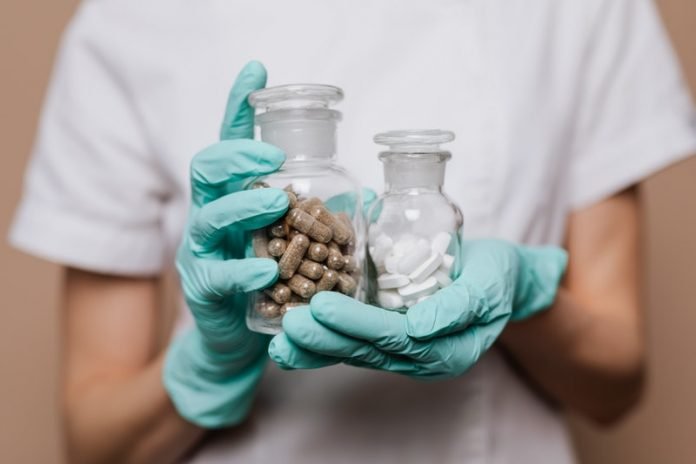
In a new study from Scripps Research, researchers found a group of medications long prescribed to treat tapeworm has inspired a compound that shows effectiveness against COVID-19.
The compound, part of a class of molecules called salicylanilides.
It has been known for 10 or 15 years that salicylanilides work against certain viruses. However, they tend to be gut-restricted and can have toxicity issues.
Salicylanilides were first discovered in Germany in the 1950s and used to address worm infections in cattle. Versions including the drug niclosamide are used in animals and humans today to treat tapeworm.
They have also been studied for anticancer and antimicrobial properties.
The new salicylanilide compound that the team created was one of about 60 that the team built years ago for another project.
When the SARS-CoV-2 virus became a global pandemic in early 2020, knowing that it may have antiviral properties, they started screening the collection.
One compound stood out. Dubbed simply “No. 11,” it differs from the commercial tapeworm medicines in key ways, including its ability to pass beyond the gut and be absorbed into the bloodstream—and without the worrisome toxicity.
About 80% of salicylanilide 11 passed into the bloodstream, compared to about 10% of the antiparasitic drug niclosamide, which has recently entered clinical trials as a COVID-19 treatment.
The experiments showed that No. 11 affected pandemic coronavirus infections in two ways.
First, it interfered with how the virus deposited its genetic material into infected cells, a process called endocytosis.
Importantly, because it acts inside cells rather than on viral spikes, questions about whether it would work in new variants like Delta and Lambda aren’t a concern.
This mechanism is not dependent on the virus spike protein, so these new variants coming up aren’t going to relegate researchers to finding new molecules as is the case with vaccines or antibodies.
In addition, No. 11 helped quiet potentially toxic inflammation, which could be important for treating acute respiratory distress associated with life-threatening COVID infections.
It reduced levels of interleukin 6, a signaling protein that is a key contributor of inflammation typically found in advanced stages of COVID-19.
Better medications against COVID-19 are urgently needed, as highly infectious new variants drive renewed surges of illness and death globally. But the team says salicylanilide No. 11 was created long before the pandemic.
If you care about COVID, please read studies about this existing drug could inhibit COVID-19 virus and findings of aspirin and other common anti-inflammatory drugs could help prevent COVID-19 deaths.
For more information about COVID and your health, please see recent studies about early use of this blood thinner drug may reduce COVID-19 death and results showing that this drug may prevent respiratory and heart damage in people with COVID-19.
The study is published in ACS Infectious Disease. One author of the study is Professor Kim Janda, Ph.D.
Copyright © 2021 Knowridge Science Report. All rights reserved.



